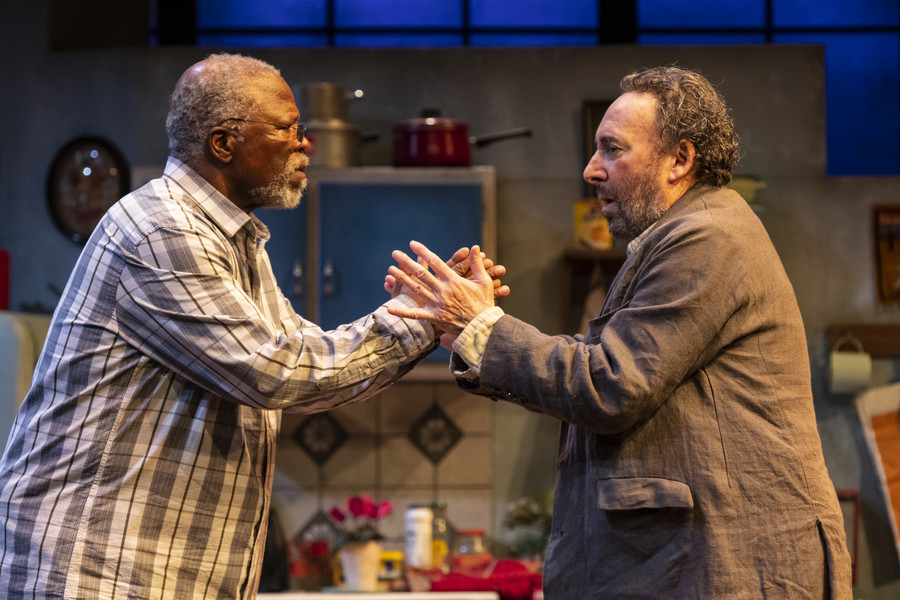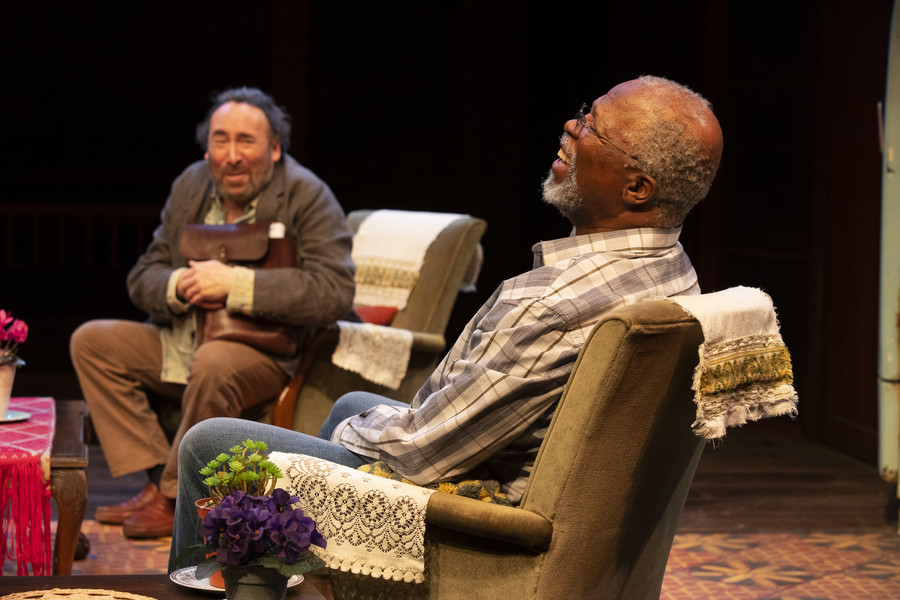In April 1994 South African citizens of all races elected Nelson Mandela as the first black president in the country’s history, marking the end of 46 years of its racist apartheid regime. Prejudice and discrimination were consigned to the history books: Archbishop Desmond Tutu declared South Africa a ‘rainbow nation’; Mandela “won the hearts of millions of white rugby fans” by putting on a Springbok shirt, and; the Truth and Reconciliation Commission provided a platform for all sides to shake hands and put all that unpleasantness behind them. South Africa lived happily ever after in a post-racial utopia.
Kunene and the King is a powerful and thought-provoking production that will stay with you long beyond its 95-minute running time.
I am, of course, being somewhat facetious. In the 25 years since apartheid, South Africa – like the rest of the world – has struggled to heal old wounds. Social inequality may no longer be official government policy, but entrenched divisions and racial disparities have sustained. Black South Africans can expect to earn a fifth of the average white salary, are five times more likely to be unemployed, and make up around 95% of citizens living in poverty. Residential segregation remains prevalent, with the white population concentrated in the affluent suburbs of the major cities, whilst black South Africans dominate the townships. And yet the ‘rainbow nation’ tag endures as, in the eyes of many, apartheid is added to the list of bad things that used to happen in the past. It is against this societal veneer that John Kani applies a revealing stress test in the form of his latest work, Kunene and the King.
Starring John Kani and Antony Sher in its lead roles, Kunene and the King is a two-handed play set in contemporary Johannesburg. The premise is, on the face of it, straightforward. Jack Morris (Sher) is a white ageing Shakespearean actor with terminal liver cancer. Against medical advice, he has discharged himself from hospital to prepare for his upcoming role as King Lear. Lunga Kunene (Kani) is a black retired nurse from a Soweto township, now assigned by an agency to care for Morris at Morris’ home in the wealthy suburbs. Here – bound together by professional duty, medical necessity and the works of William Shakespeare – Kunene and Morris find they must confront the other’s contrasting experience of their shared nation. The result is necessarily raw.
Morris, for his part, is fiercely reluctant to entertain discomforting conversation. Throughout his life, he has been allowed the freedom to remain politically disengaged, unaffected by racialised social injustice – “I don’t know about politics, I’m an artiste!”, he insists. For Kunene, there has been no such luck – “In the old South Africa, it was never politics. It was life or death” – and Morris’ resolute apathy towards his suffering is provocative. The tension builds as Kunene’s presence in Morris’ life becomes increasingly confrontational. Morris finds himself suddenly personally accountable for the privilege he represents, and – more tellingly – having to examine the underlying prejudices that enable him to defend his indifference.
The performances from both leads are, reliably, excellent.
Pleasingly, the play does not shy away from confronting the violence, scandals and failures in leadership that now dominate South Africa’s post-apartheid narrative. In one of the play’s more intense exchanges, Kunene provides an impassioned response to Morris’ assertion that murder, sexual crime and political corruption and incompetence are intrinsically linked to black governance. It’s the sort of powerful debate clip one might expect to go viral after a particularly heated Question Time.
The performances from both leads are, reliably, excellent. Antony Sher is perfectly cast as Morris; spinning relentlessly on an emotional six-pence between waves of irredeemable cruelty and childlike vulnerability (punctuated with the occasional rousing Shakespearean soliloquy). Alongside him, John Kani’s Kunene is – for the most part – quietly dignified, and yet unmistakeably scarred by the constrained frustration of unresolved historic injustice. The combined effect of their head to head – particularly in the final third – is stirring.
Kunene and the King is a powerful and thought-provoking production that will stay with you long beyond its 95-minute running time.






























